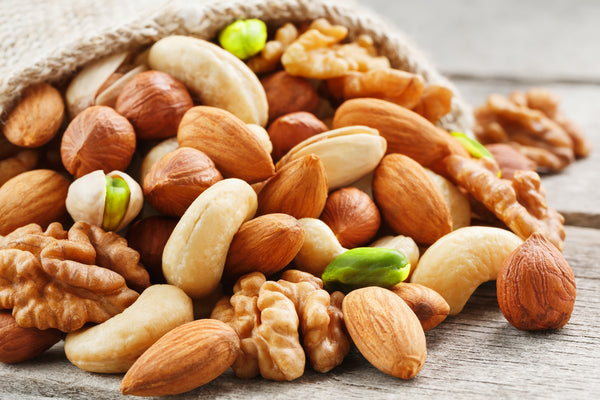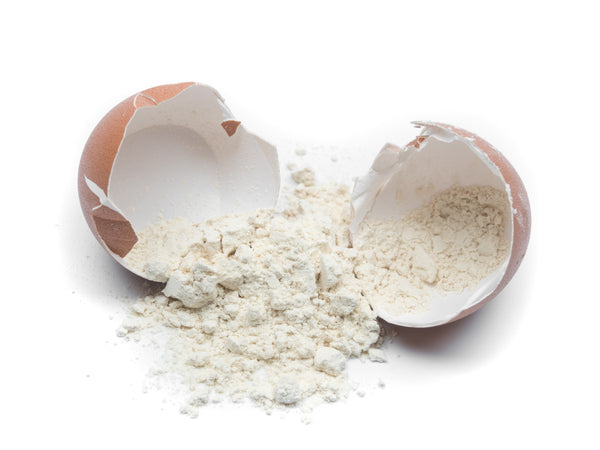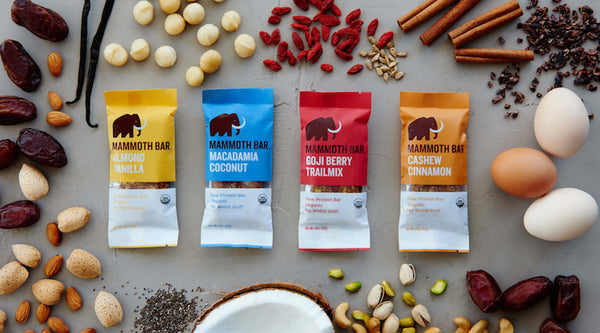Your Cart is Empty
5 Scientifically Proven Benefits of Eating Organic

Organic food has been flying off the shelves even more quickly than usual recently. In fact, it’s one of the fastest-growing categories in supermarkets right now. Worldwide sales of organic foods have been growing steadily every year. According to Statista , revenue from organic food is six times higher than it was in 1999 and shows no signs of slowing.
So why has organic become so popular lately? Many people started buying organic during the pandemic in an effort to remain healthy and promote their immunity. There has also been much more attention and research dedicated to the nutritional and environmental implications of organically-grown food. To learn more about how the organic label guarantees safety and quality, read our blog post about organic certification .
Even with its newfound popularity, many people are still unclear about the real-life benefits of an organic diet. There are a million reasons why everyone should try to eat as organically as possible. Simply put, it is better for your body and for the environment. Read on for the top five science-backed reasons why organic is always preferable.
1. Lower exposure to pesticides & chemicals
Many people are still unaware about many of the toxins that can be present in their food, even “healthy” food like produce. But they are actually quite common- for example, 19 of 30 commonly used lawn pesticides are linked to cancer. When you eat organic, though, you can breathe easily. To receive organic certification, foods must be grown and produced without the use of artificial fertilizers and most synthetic pesticides. The use of weedkillers, insecticides, fertilizers and fungicides is monitored very strictly for organic food, and ingredients are not exposed to most of the chemicals and carcinogens that can be present in production processes.
Need proof? A 2019 U.S. study analyzed the effects of switching to a 100% organic diet. After only six days eating organic, the participants’ pesticide levels dropped a whopping 60.5%. This happened for both children and adults. One of the participants, Boyd Baker, described the results as “surprising and a little shocking. Just to see the dramatic shift…there’s no way it can’t make you think a little more about what you put in.”
2. Organic farming is better for the environment
Compared to non-organic farming, organic food production creates less pollution, promotes soil fertility, and uses less energy.
It also reduces soil erosion. A Swiss study found that an organic farm had, on average, 8 more inches of topsoil than a chemically treated farm. This is a good thing for many reasons, one being that healthy soil stores more carbon. This allows plants to store more water (reducing water runoff) and produce more food.
Organic farming is also much better for the farmers. Those that work on organic farms are exposed to significantly lower levels of pesticides, toxins, and heavy metals than those who work on non-organic farms.

3. Higher vitamin content
Our soil has microbes that are critical to the healthy development of plants. When it is sprayed with chemicals like pesticides and herbicides, these microbes are destroyed and plants cannot derive the nutrients they need from the ground. The lack of chemicals in organic food makes it inherently richer in healthy vitamins and minerals. A 6-year field study concluded in 2017 found that organic onions had about a 20% higher antioxidant content than non-organic onions.
4. More healthy fats
A 2016 British study found that organic meats contained 47% more omega-3 fatty acids. Omega-3’s are involved in hormone production and help with inflammation and the contraction and relaxation of artery walls. Researchers believe organic meat is more nutritious because the animals are encouraged to graze and eat more produce, while non-organic livestock spend more time inside and consume more grains.

5. No GMO’s
All organic food is GMO-free. This means that the organisms have not been genetically modified or enhanced in a laboratory. Non-GMO food contains less chemicals and is much less processed. Choosing whole, non-GMO foods ensures that consumers get the freshest and most nutritious ingredients.

Here at Mammoth Bar, we know you deserve to eat only the highest-quality and most delicious ingredients. That’s why all of our products are certified organic and contain zero harmful additives. Now that’s something to feel good about.
Also in Health & Wellness Corner

We’re nuts about nuts- and you should be, too
History, benefits, and fun facts about the superfood.
Read More

